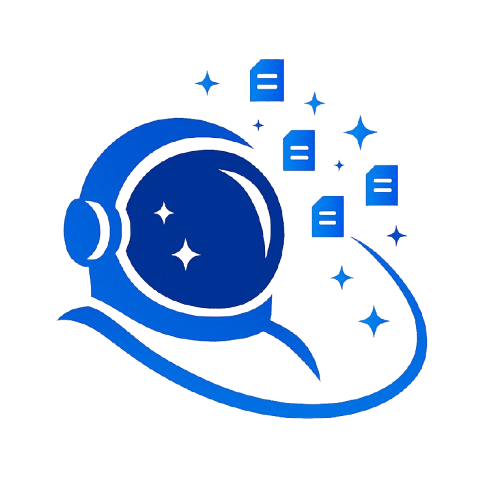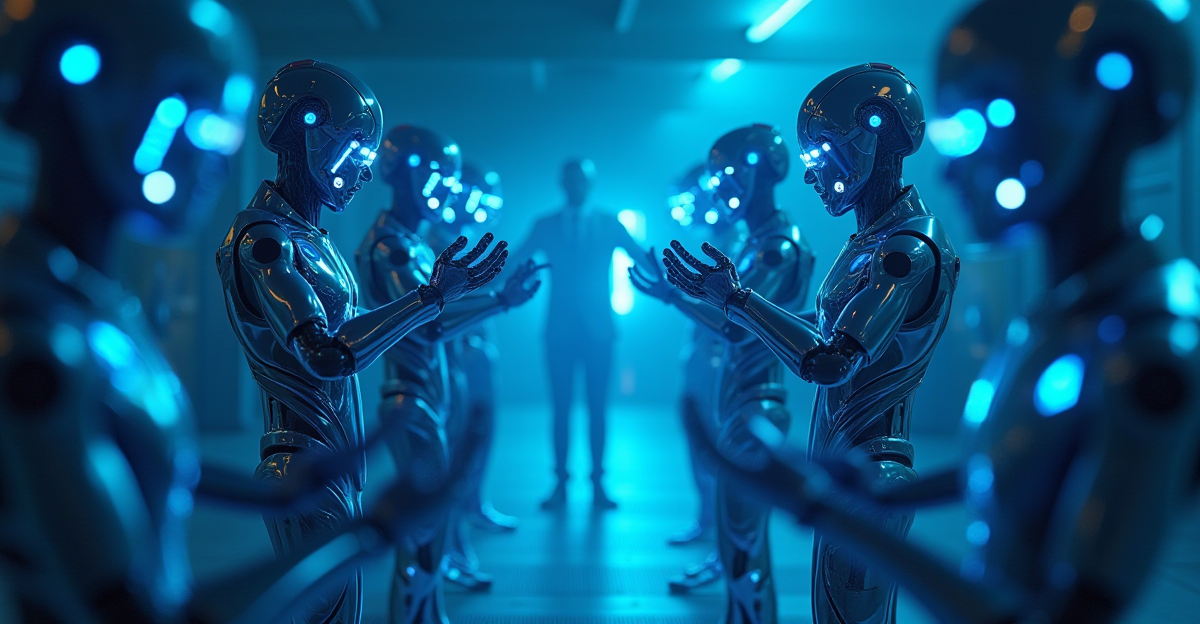The Game-Changing Autonomous Systems Revolutionizing Technical Workflows
Technical Definition and Core Architecture
AI agents represent autonomous computational systems built upon large language model foundations, engineered to execute complex tasks independently without continuous human supervision. Unlike traditional software applications or basic AI assistants, these systems possess sophisticated reasoning capabilities, adaptive learning mechanisms, and autonomous decision-making protocols that enable them to tackle both structured and unstructured problem domains across enterprise environments.
These systems transcend simple automation by functioning as intelligent collaborators capable of strategic thinking, contextual understanding, and dynamic problem-solving across domains including customer service optimization, healthcare system management, financial analysis, and technical infrastructure management.
The Gamification of AI Agent Development
Understanding AI Agents Through Gaming Mechanics
For IT professionals with gaming backgrounds, AI agents can be conceptualized as sophisticated NPCs (Non-Player Characters) with advanced behavioral trees and machine learning capabilities. Just as modern game AI adapts to player strategies and learns from interactions, AI agents evolve their problem-solving approaches based on environmental feedback and task completion patterns.
Level Progression System: AI agents develop capabilities through iterative training, similar to character progression in RPGs. Each successful task completion contributes to their knowledge base, enhancing performance in future scenarios.
Skill Trees and Specialization: Like character builds in strategy games, AI agents can be specialized for specific domains—cybersecurity, data analysis, system administration—with distinct capability sets and optimization patterns.
Quest and Achievement Mechanics: AI agents operate through goal-oriented task structures resembling quest systems, with complex multi-step objectives that require strategic planning and resource management.
Adaptive AI Behavior: Drawing from advanced game AI that learns player patterns, AI agents continuously refine their decision-making processes based on success metrics and environmental changes.
Strategic Implementation as Game Design
Resource Management: Implementing AI agents requires balance between computational resources, response accuracy, and operational costs—similar to managing economy systems in complex strategy games.
System Architecture as Game Balance: Different AI agent configurations require careful tuning to prevent overpowered automation that disrupts workflow balance or underpowered systems that fail to deliver value.
Player Agency and Character Builds: Technical professionals can customize AI agent personalities, communication styles, and problem-solving approaches to match their preferred working styles and project requirements.
Multiplayer Dynamics: AI agents can form collaborative networks, sharing knowledge and coordinating tasks across different domains, resembling guild mechanics in online games.
Deep Technical Analysis for Enterprise Implementation
Autonomous Decision-Making Architecture
Reasoning Engines: AI agents utilize sophisticated logic frameworks that enable complex problem decomposition, hypothesis generation, and solution validation without human intervention.
Adaptive Learning Systems: These systems continuously refine their behavioral patterns through reinforcement learning mechanisms, becoming more effective at specific organizational tasks over time.
Context Awareness Protocols: Advanced AI agents maintain persistent memory of previous interactions, project contexts, and organizational knowledge, enabling increasingly sophisticated task execution.
Multi-Modal Integration: Modern AI agents process text, code, visual data, and structured information simultaneously, providing comprehensive analysis capabilities across technical domains.
Strategic Value for Independent Technical Professionals
Cognitive Load Reduction: AI agents handle routine analytical tasks, freeing technical professionals to focus on high-value strategic thinking and creative problem-solving.
Scaling Individual Expertise: These systems amplify individual capabilities, allowing solo practitioners to manage complex projects typically requiring larger teams.
Continuous Learning Partnership: AI agents serve as always-available technical research assistants, providing instant access to current best practices and emerging technologies.
Strategic Decision Support: Advanced analytical capabilities enable more informed technical decisions by processing vast information sets and identifying patterns humans might miss.
Professional Impact Analysis
Workflow Transformation Patterns
AI agents fundamentally reshape professional workflows by assuming responsibility for complex analytical tasks previously requiring extensive human involvement. This transformation enables technical professionals to focus on strategic architecture decisions, creative problem-solving, and high-level system design rather than routine data processing and analysis tasks.
Dynamic Task Delegation: Professionals can assign complex, multi-step technical projects to AI agents with confidence that these systems will manage dependencies, handle edge cases, and provide comprehensive solutions.
Enhanced Problem-Solving Capabilities: AI agents excel at pattern recognition across large data sets, enabling faster identification of system vulnerabilities, optimization opportunities, and architectural improvements.
Autonomous Research and Discovery: These systems can independently research technical solutions, evaluate multiple approaches, and present comprehensive recommendations with supporting analysis.
Career Development Strategic Advantages
Strategic Role Evolution: Technical professionals who master AI agent collaboration position themselves for strategic leadership roles, becoming tactical systems architects who orchestrate both human and artificial intelligence resources.
Increased Market Value: Professionals skilled in AI agent deployment and management become valuable assets for organizations seeking to optimize their technical operations through intelligent automation.
Expanded Project Scope: AI agent partnership enables individual professionals to tackle larger, more complex projects that traditionally required extensive team resources.
Innovation Acceleration: Access to AI agent analytical capabilities allows for rapid prototyping, testing, and iteration of technical solutions.
Gaming-Inspired Implementation Strategies
Character Building for Technical Roles
Specialist Builds: Configure AI agents with specific technical expertise—cybersecurity specialist, cloud architecture expert, data analytics strategist—to complement your core competencies.
Hybrid Configurations: Develop versatile AI agents capable of cross-functional work, similar to hybrid character builds in strategic games.
Evolution Paths: Plan AI agent development trajectories based on your professional goals and project requirements, allowing these systems to become increasingly specialized in your domain.
Team Composition and Synergy
Multi-Agent Coordination: Deploy multiple specialized AI agents that collaborate on complex projects, similar to managing a diverse team of specialists in strategy games.
Role Complementarity: Design AI agent capabilities to fill gaps in your skill set while enhancing your existing strengths.
Strategic Resource Allocation: Optimize AI agent deployment across different projects and priorities, maximizing overall productivity and impact.
Enterprise Integration and Organizational Impact
Structural Transformation
AI agents are catalyzing significant changes in organizational decision-making processes and hierarchical structures. Traditional command-and-control management models are evolving toward more distributed, intelligence-augmented systems where AI agents provide real-time analysis and recommendations across all organizational levels.
Flattened Hierarchies: AI agents enable more direct access to analytical insights, reducing the need for multiple management layers in technical decision-making processes.
Democratized Expertise: Advanced technical analysis becomes accessible to professionals across different experience levels through AI agent partnership.
Accelerated Innovation Cycles: Organizations can prototype, test, and implement technical solutions more rapidly with AI agent support.
Risk Management and Quality Assurance
Enhanced Critical Thinking: Understanding AI agent capabilities and limitations is essential for maintaining technical quality and avoiding over-reliance on automated decision-making.
Bias Detection and Mitigation: Technical professionals must develop skills to identify and correct algorithmic biases in AI agent outputs.
Security and Compliance: AI agent deployment requires comprehensive security frameworks and compliance monitoring to protect sensitive organizational data.
Strategic Implementation Framework
Phase 1: Foundation Building
Technical Infrastructure: Establish secure AI agent deployment environments with proper access controls and monitoring capabilities.
Skill Development: Develop proficiency in prompt engineering, AI agent configuration, and performance optimization techniques.
Process Integration: Design workflows that leverage AI agent capabilities while maintaining human oversight and quality control.
Phase 2: Advanced Orchestration
Multi-Agent Coordination: Implement systems where multiple AI agents collaborate on complex technical projects.
Continuous Learning: Establish feedback mechanisms that enable AI agents to improve their performance based on project outcomes.
Strategic Analysis: Use AI agents for competitive analysis, technology trend monitoring, and strategic planning support.
Phase 3: Innovation Leadership
Custom Agent Development: Build specialized AI agents tailored to unique organizational needs and technical challenges.
Enterprise Architecture: Design comprehensive AI-augmented technical operations that maximize efficiency and innovation potential.
Thought Leadership: Become a recognized expert in AI agent implementation, contributing to industry best practices and standards.
Future Implications and Strategic Positioning
The evolution of AI agents represents a fundamental shift in how technical work is conceptualized and executed. Professionals who understand these systems as sophisticated, gamified partners rather than simple tools will be best positioned to leverage their transformative potential.
Like mastering a complex strategy game, success with AI agents requires understanding their capabilities, limitations, and optimal deployment strategies. The professionals who develop these skills will find themselves leading the next generation of AI-augmented technical organizations.
This transformation offers unprecedented opportunities for individual professionals to amplify their impact, accelerate their career development, and contribute to innovative solutions that were previously impossible for single practitioners to achieve.
In-Depth exploration
MY ROLE: [YourRole]
OUTPUT LANGUAGE: [LANGUAGE]
I want to deeply explore how AI agents work in a way that is directly relevant to my role.
Please explain:
What AI agents are and how they function beyond simple LLM outputs
Why AI agent capabilities matter for my use case
How to design, configure, or work effectively with AI agents in practical scenarios
Typical misunderstandings or pitfalls when dealing with AI agents and how to avoid them
How to optimize tasks and workflows using AI agents without unnecessary complexity or risks
Additionally:
Provide examples that make AI agents intuitive and relatable for someone in my role
Suggest tools, frameworks, or methods to visualize and manage AI agent behavior and outcomes
Offer advanced tips for deeper exploration tailored to my field and responsibilities


